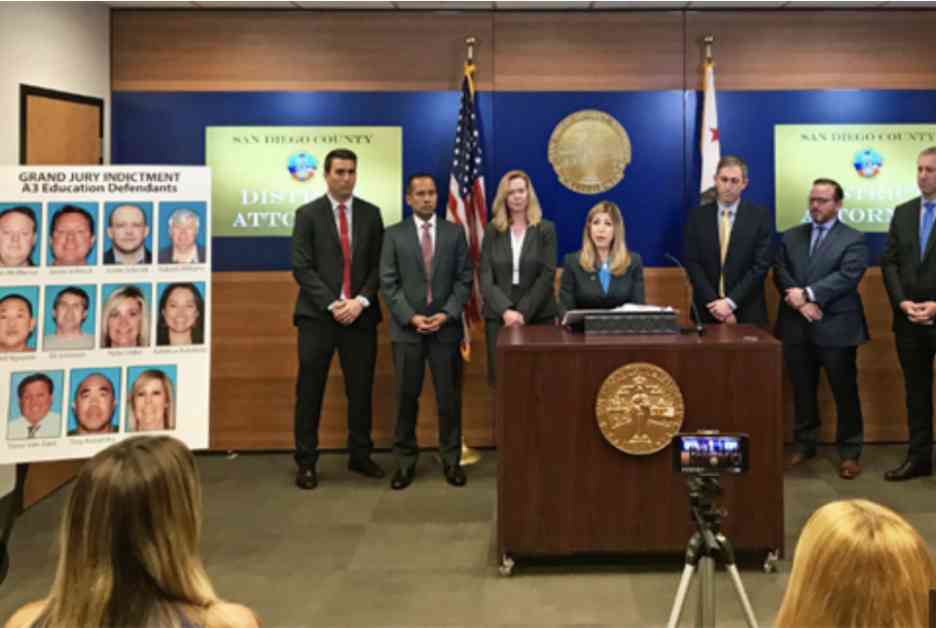State Controller Malia Cohen recently chaired a court-commissioned task force aimed at preventing fraud in charter schools following the indictment of 11 individuals affiliated with A3 Education, including founders Sean McManus and Jason Schrock. The task force issued a set of recommendations to strengthen auditing processes not only for charter schools but also for school districts and county offices of education.
The report emphasized the importance of training, selecting, overseeing, and disciplining school auditors, as well as expanding their responsibilities to ensure the highest level of integrity, accountability, fiscal compliance, and transparency in all schools. Cohen highlighted the significance of safeguarding taxpayer investments in education and the education of children.
The task force was established in response to a massive fraud by an online charter school network, Academics Arts and Action Education, which pilfered millions of dollars in public funding. The multi-agency task force focused on enhancing the auditing process to detect and respond quickly to possible fraud through annual reviews by professional, independent auditors overseen by Cohen’s department.
Judge Robert Longstreth signed an order in September 2023 to establish the multi-agency task force after witnessing how A3 exploited weaknesses in the auditing system. A3 fraudulently enrolled participants in its summer athletic programs into the charter school’s academic program to claim funding based on average daily attendance, even though the students did not receive educational services. The report also revealed that private schools and other programs involved in the enrollment scheme received a portion of the state’s per-student funding, while A3 retained the rest.
In 2021, A3’s founders, Sean McManus and Jason Schrock, pleaded guilty to a conspiracy to commit theft of public funds related to phantom enrollments. As part of their plea deal, the executives agreed to serve four years on house arrest and repay $37 million. The State Controller’s Office and the San Diego County District Attorney’s Office, which prosecuted A3, led the task force, with input from various education associations.
The recommendations put forth by the task force will require legislative action and additional funding for implementation. The report acknowledged the need for collaboration among stakeholders with differing perspectives to address the breakdowns in oversight that allowed fraud to occur in charter schools like A3 and Inspire Charter Schools.
The report highlighted the importance of tracking enrollment and attendance changes monthly to detect potential fraud early. It also recommended enhancing the qualifications, certifications, and evaluations of accountants auditing schools to ensure the quality and reliability of audits. The task force called for training requirements for school auditors, quality reviews by the State Comptroller’s Office, and conditions for removing poorly performing auditors from eligibility lists.
Conflicts of interest were identified as contributing factors to charter school fraud, with cases revealing collusion between vendors and charter leaders, self-dealing by charter CEOs, and other conflicts that could lead to fraud or waste. The report recommended financial disclosure statements for top school employees and vendors, as well as disclosure statements for contracts with charter management organizations to prevent conflicts of interest.
The task force emphasized the need for independence among auditors to prevent bias in financial transactions and enrollment sampling for audits. It also highlighted issues with non-classroom-based charter schools, where less than 80% of instruction occurs in person, and called for stronger oversight and auditing in these institutions.
Efforts have been made to address fraud in non-classroom-based charter schools through a legislative moratorium on approving new schools of this type. With pressure mounting on the Legislature to implement auditing and oversight reforms before the moratorium ends in 2026, the recommendations from the task force and other reports will play a crucial role in shaping the future of charter school accountability.
